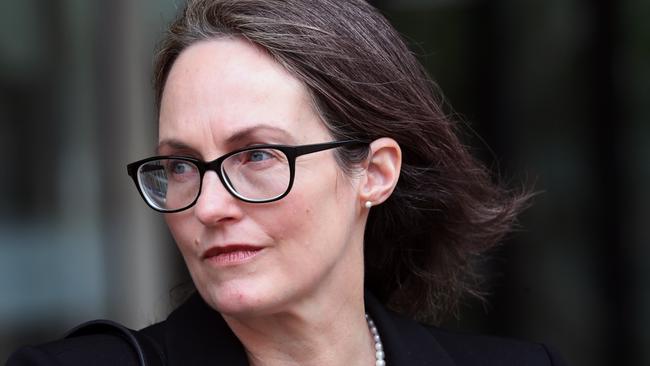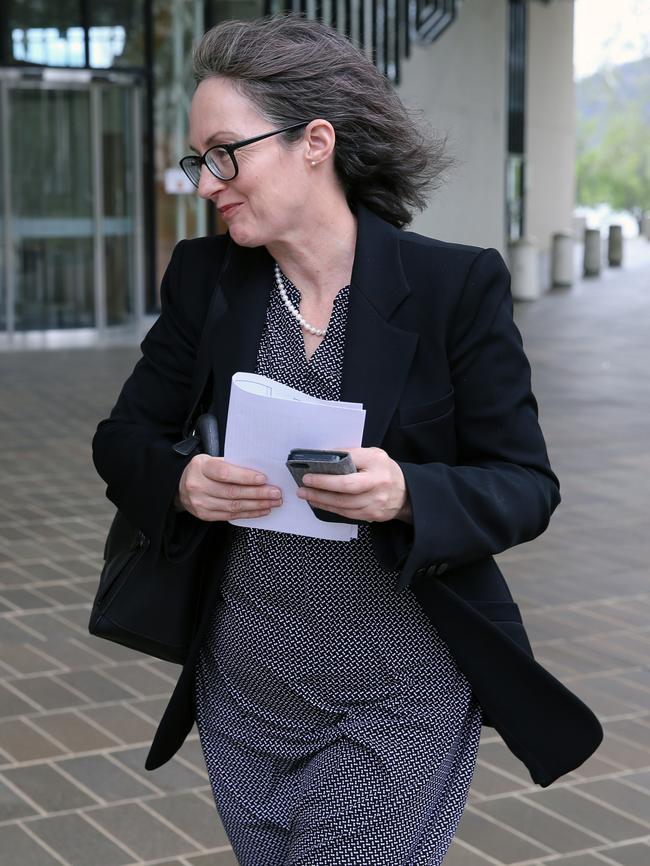Abortion clinic safe access zones valid: High Court
Australia’s highest court has today ruled safe access zones outside abortion clinics in Victoria and Tasmania are valid, after a challenge by anti-abortion activists.

Law & Order
Don't miss out on the headlines from Law & Order. Followed categories will be added to My News.
The High Court has ruled safety buffer zones outside abortion clinics in Victoria and Tasmania are valid.
Kathleen Clubb, a mother of 13, was convicted of breaching Victorian law in 2016 and fined $5000, while Queenslander John Preston was convicted of three breaches of the Tasmanian law in 2014 and 2015 and fined $3000, after protesting too close to abortion clinics.
The two activists argued laws creating safety buffer zones outside abortion clinics discriminated against political free speech, but the High Court today rejected their appeals.
Safe access zones were introduced in Victoria in 2016 to create the 150 metre buffer zones banning anti-abortion activity.
FRESH DETAILS OF ELDERLY WOMAN’S ‘BRUTAL’ MURDER
WYNN DITCHES CROWN BID AFTER LEAK
MASSIVE UNION RALLY TO SHUT DOWN CBD STREETS
The High Court decision is expected to have national impact, as the court was asked to determine whether the safe access zones impinge constitutionally implied freedoms.
Adrianne Walters, from the Human Rights Law Centre, which intervened in the case, said the High Court’s decision acknowledged the importance of privacy, safety and equality in accessing healthcare.

“With today’s decision, women in Victoria and Tasmania never again need to worry about being forced to run a gauntlet of abuse to access abortion care. Safe access zones are here to stay,” Ms Walters said.
Maurice Blackburn, which acted for the Melbourne clinic, said the buffer zones protected women’s rights to use lawful health services safely and privately, where other legal protections had failed.
“We welcome today’s decision which has upheld a woman’s right to access her doctor free from fear, intimidation or harassment,” lawyer Jennifer Kanis said.
“Safe access zones were introduced in 2015 to protect the privacy, safety and dignity of women seeking reproductive health care.
“We do not want to see a return of the days when women were abused and intimidated as they sought reproductive health care.”
Dr Susie Allanson, who worked as a clinical psychologist at the Melbourne clinic for 26 years, said the decision was a win for clients and staff.
“Since the safe zones came into effect, women and staff are no longer a target when they walk up to the clinic, and women no longer carry the heavy burden of being publicly attacked for seeking medical care,” Dr Allanson said.
The Australian Christian Lobby branded the outcome disappointing for freedom of speech.
“The decision means that a simple act of communication – handing a piece of paper to someone – is met with an extreme penalty. A criminal conviction is an outrageous punishment for such a simple and harmless act,” the lobby’s Martyn Iles said.
Victoria introduced safe access zone laws in 2016, while Tasmania introduced them as part decriminalising abortion in 2013. NSW, the ACT, the Northern Territory and Queensland also have safe access zone laws.
The Human Rights Law Centre says women seeking reproductive care continue to be harassed in Western Australia and South Australia because their governments have failed to protect them.
